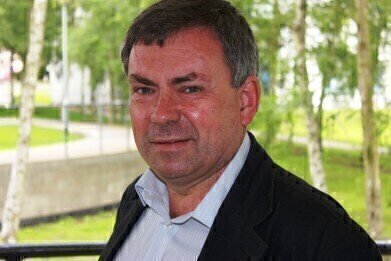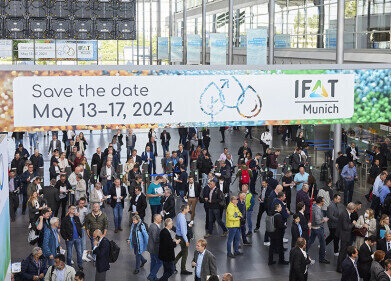Waste Management
Can Simple Single-Celled Organisms Combat Climate Change?
Sep 12 2012
An initiative by Norwich Research Park aims to discover whether simple single-celled organisms can help to combat climate change. Living in all conditions from hot springs to industrial effluent, these organisms can help clean pollutants and potentially create a whole new type of industry. Gordon and Betty Moore Foundation have recently offered Norwich Research Park £750k for the initiative.
Professor Colin Murrell is the first Director of the Earth and Life Sciences Alliance (ELSA), an initiative that aims to identify environmental responses to climate change. ELSA will pull together expertise from around the Norwich Research Park, from the insights of molecular and cell biologists at the John Innes Centre, through to specialists in biodiversity, ecosystem services and international development at the University of East Anglia.
An eminent microbiologist, Prof. Murrell has spent the last 28 years building up a strong research group at the University of Warwick. He was attracted to the Norwich Research Park for its diversity of microbiologists – probably the highest concentration in the UK.
He is establishing a laboratory at UEA that has already attracted inward investment – such as the announcement of £750k from the Gordon and Betty Moore Foundation Marine Microbiology Initiative and £360k from the Natural Environment Research Council for research on environmental microbiology – and has created six new jobs.
Prof. Murrell admits that he had not anticipated moving on from Warwick but became excited by the possibilities in Norwich and of ELSA, which provides a wider context for microbiology.
He says, “Having access to scientists who can see the big picture as well as the tiny detail is very useful. It is easy in science to become increasingly specialised. The interest for me in Norwich is to see how microbiology fits into global strategies such as those for food security and response to climate change.”
Prof Murrell’s area of interest is identification of crucial microbes:
“The big challenge of environmental sciences is trying to work out ‘who eats what, when and why’ in the environment. When this becomes apparent, it is possible to do something about it. All natural systems have feedback mechanisms, if you can understand what these are then you can help mitigate the effects of global warming and climate change.
“My research focuses on microbes that can feed on greenhouse gases such as methane, which is a cause of climate change. Although microorganisms are responsible for driving the biogeochemical cycling of elements, there are very few methods of identifying which are the most important ones in the environment and this is why our work is so valuable.
“We have developed a method of identifying bacteria that can grow on methane. We feed microbes heavy carbon-13 methane and the ones we are interested in are those that incorporate the carbon-13 into their DNA. We can separate them out and classify them using a gene probing and sequence analysis technique called DNA Stable Isotope Probing.
“The funding we have received will further develop this work to help create tools that can be used to identify both harmful and beneficial microbes. The cost of sequencing is falling all the time so we should be able to develop tests that are widely applicable.”
In the future, it might be possible to use the tool to enable rapid identification of microbes that can break down chemicals contaminating water supplies, soils and the marine environment, including oil spills.
Additionally, there are many microorganisms in the marine environment that have unknown properties, providing an untapped reservoir of new materials. Being able to categorise them effectively opens up possibilities of using these microbes as the basis for new industries.
Prof Murrell explains that strategies to reduce greenhouse gases, such as methane, will be enhanced through the work of ELSA:
“Knowledge of the microbiology of elemental and nutrient cycles is core to our understanding of the environment.
“Cutting the emissions of greenhouse gases and gases that harm the Earth’s atmosphere is essential. Understanding how microbes can feed on these chemicals before they are released to the atmosphere is essential if we are to reduce the greenhouse effect and prevent the potentially catastrophic effects of steep rises in the Earth’s temperature over the next 50 years”.
Events
May 05 2024 Seville, Spain
May 13 2024 Munich, Germany
May 23 2024 Beijing, China
May 23 2024 Beijing, China
Jun 10 2024 Algiers, Algeria













